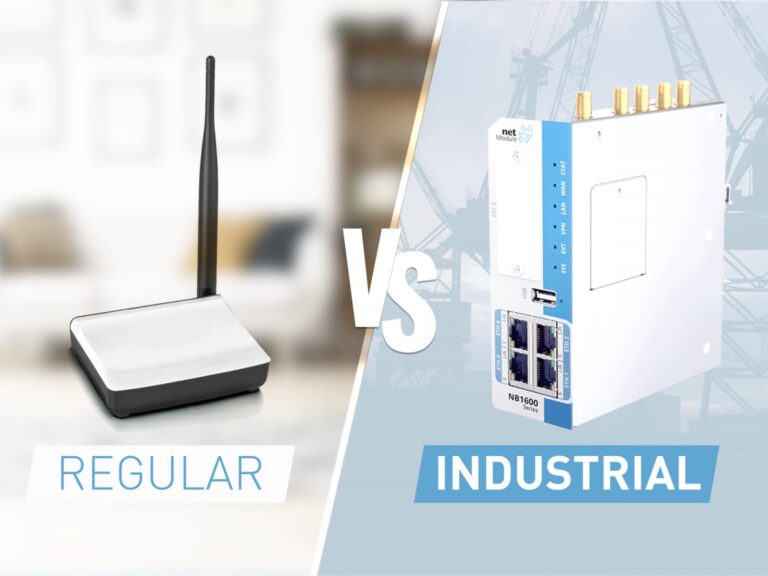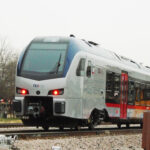Compact and Rugged
The industrial router you select should be compact, because space is almost always at a premium. If you’re deploying a router on a train or on mining equipment, there’s just no excess room for an oversized router. The unit should come in a small form factor with a low profile and be easily mountable.
The router you choose should also be ruggedized to stand up to the harshest environments. Ideally, the housing should be aluminium to avoid the possibility of rust. The unit should be sealed so that it’s weatherproof. And it should be able to survive an extended temperature (-25 °C to +70 °C) with no fan. It’s important the unit survive the high temperatures without a fan because the appropriate power isn’t always available.
High Availability
It’s essential for industrial routers to have high availability because they’re used in situations where there’s usually no other options for network access. If the router can’t connect, you’re offline.
The best way for an industrial router to guarantee high availability is with redundancy. Redundancy in this case means network redundancy. Industrial routers should provide multi-technology together with multi-provider network redundancy. This is especially important in mobile applications.
Industrial routers should be able to accommodate all the major wireless wide area network (WAN) technologies including LTE, UMTS GSM and now 5G. That way, no matter what service is available, the router can be online.
For maximum availability, the router should accept multiple SIM cards. With multiple SIM cards, mobile routers can stay connected as the WAN technology changes when the vehicle moves. Multiple SIM cards can also be used to configure the router for failover to ensure uninterruptible network access.
Other forms of redundancy to look for in industrial routers include dual wireless local area network (LAN) capability, as well as dual ethernet ports.
Bulletproof Software
Routers are essentially computers, with an operating system and router software. When it comes to industrial routers, it’s imperative that both the operating system and router software be bulletproof. In other words, ultra-reliable.
As for the operating system, you should look for a router which uses a proven, mature technology like Linux. Linux is widely used and tested with many years of successful operation in the field. When it comes to router software, you’ll want to find a router company that provides strong software stewardship. A company that carefully and responsibly manages their router software.
How can you identify good software stewardship? Look for companies that test their software regularly. You’ll know they do that if software bugs are fixed and documented in a timely manner.
You’ll also want a company that develops and releases security patches in a timely manner. And make sure they produce well-documented and informative release notes.
Quality of Service
Users expect guaranteed performance from their routers today and it’s no different for industrial routers. Best effort is no longer good enough. If your industrial router needs to perform mission critical communications, you’ll need to find one that can support quality of service (QoS) functionality.
Industrial routers with QoS work in conjunction with dedicated bearers, like those available with LTE. With dedicated bearers, dedicated tunnels can be created for one or more specific data streams and include the ability to specify QoS for each one. In this way, an industrial router with QoS can deliver guaranteed bit rates (GBR), which is essential for critical applications like autonomous train systems.
Extended Functionality
Since space is at a premium, you’ll want an industrial router that crams a lot of functionality into a small space. In industrial applications, you don’t always have the luxury of using separate devices.
If you need locations services, make sure your industrial router includes GPS/GNSS/GLONASS capability. If you need network functionality, look for an industrial router with an embedded ethernet switch. You can also find industrial routers with built-in web servers, VPN servers and RADIUS servers, if you need that functionality. There’s no reason to get them as separate devices.
Other capabilities you can get in an industrial router include digital I/O for serial interface, power over ethernet (PoE), extended input voltage (72V, 96V, 110V) and various network services including DHCP, DNS, NTP, SNMP.
Security
Last, but certainly not least is security. You want an industrial router capable of secure communications. And when it comes to WANs, that means IPsec and VPNs.
IPsec is a secure network protocol suite that authenticates and encrypts the packets of data to provide secure encrypted communication between two routers over a WAN. It’s used in virtual private networks (VPNs).
Just as with Linux, you’ll want to make sure the VPN software in the industrial router uses proven, mature technology, that is widely used and tested with many years of successful operation in the field. In the case of VPN software, that means OpenVPN.
Summary
Industrial routers are used in harsh environments, often with changing network availability. To confidently deploy industrial routers, you should look for these six features:
- Compact and rugged
- High availability
- Bulletproof software
- Quality of service
- Extended functionality
- Security





